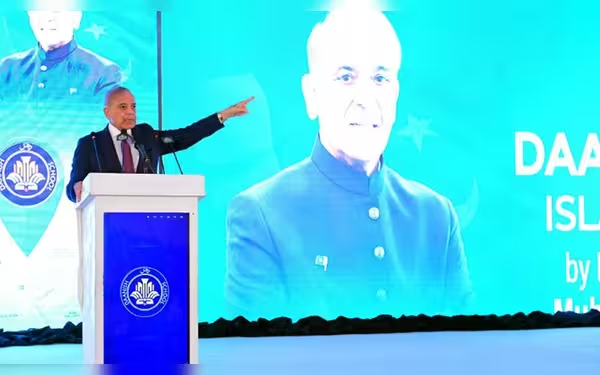Tuesday, July 2, 2024 04:30 PM
Shehbaz Sharif declares education emergency in Pakistan
- 26 million out-of-school children in Pakistan
- Malala Yousafzai urges increased education expenditure
- Challenges in sustainability of educational initiatives in Pakistan
 Image Credits: 92 News
Image Credits: 92 NewsPrime Minister Shehbaz Sharif declares an education emergency in Pakistan, highlighting the urgent need for quality education, while challenges in sustainability and governance persist.
Prime Minister Shehbaz Sharif has declared an 'education emergency' in Pakistan, emphasizing the need to provide quality education to children from poor families. With 26 million out-of-school children, the Prime Minister highlighted the urgency of addressing this 'criminal negligence' and fulfilling Quaid-e-Azam's dream for the country.
Educational activist Malala Yousafzai has urged the government to increase education expenditure to at least 4% of the national GDP, particularly focusing on girls' education. Despite efforts by organizations like the Malala Fund, Pakistan's current spending on education remains below par compared to neighboring countries.
The nation's literacy rate stands at 57%, with a meager 2% of GDP allocated to education, the lowest in the region. This lack of investment, coupled with mismanagement and transparency issues, has hindered progress in combating illiteracy and poverty.
While initiatives like the Daanish Schools aim to provide education to the masses, sustainability remains a concern due to governance challenges and lack of continuity between governments. The private sector, although active in professional education, has limited involvement in mass education due to financial and political constraints.
Despite historical efforts like the 'Nai Roshni Schools' scheme, which aimed to eradicate illiteracy, the lack of continuity between governments has led to wasted resources and makeshift educational arrangements for underprivileged children.
With the responsibility of education now primarily in the hands of provinces post the 18th amendment, the federal government's role lies in budget allocation and overall coordination of educational efforts.
In conclusion, addressing the education crisis in Pakistan requires sustained investment, improved governance, and a collective effort from both the government and society to ensure quality education for all, especially the marginalized communities.













